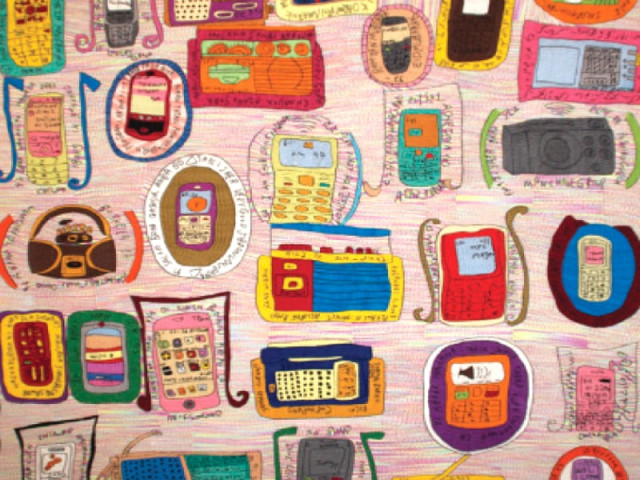Ramazan diaries: Artistic depictions of thoughts and rituals
The textile collection will feature artistic recordings of events, thoughts and rituals during Ramazan.

This year’s “Ramazan Diaries”, set to open at Nomad Gallery on September 1, will focus on the difference the advent of technology has made in the lives of fourteen women from Chitral. Much like last year’s exhibition, the textile collection will feature artistic recordings of events, thoughts and rituals during Ramazan.
“Around six of the hand-embroidered textiles in this collection will focus on text messages these women sent each other around Ramazan. The narratives offered in the works are novel and insightful,” Ange Braid of Polly & Me told The Express Tribune.
In March 2008, Polly & Me — a social enterprise working with the Agha Khan Rural Support Programme (AKRSP) — invited women from Chitral’s embroidery collectives to participate in a series of creative workshops. Using inspiration from their daily lives, the women produced a collection of 23 hand-embroidered textiles for the exhibition.
Mogh was set up in 2006 as a public company to create income and employment opportunities for the women of Chitral. Over the years, Mogh has trained more than 3,000 female artisans in a variety of skills, including hand-woven woolen fabrics, embroidery, knitting and crocheting. “This is a continuing, great aesthetic initiative to empower women through their own experiences and thought processes. The artisans are given artistic freedom, which shows in all the works,” commented Nageen Hyat, the curator of Nomad Gallery.
Braid says that those planning to attend the exhibition can look forward to hand embroidered cushions, bed covers, wall hangings, and crockery. Though the exhibition at Nomad Gallery will be more intimate than the one held at the Serena in May, Braid states that the artwork will definitely be worth seeing as they will be aesthetically pleasing and thought-provoking at the same time.
One of the most pivotal and unique element of the collection is quirkiness, which shows how these women have thoroughly enjoyed their time producing the work and being a part of the programme. A sneak-peek at pictures of a wall hanging shows a collection of phones and clocks, illustrating how “technology has changed the way these women perceive time, keep time and manage their lives”, according to Braid.
The concept of time is especially important during Ramazan, when ‘Sehri’ and ‘Iftari’ have to be kept in check as well as how time seems to run at a slower pace than usual. Therefore the title ‘Ramazan Diaries’ is further qualified as these women artistically represent sentiments so universally Pakistani, but in their unique style.
Published in The Express Tribune, August 29th, 2012.



















COMMENTS
Comments are moderated and generally will be posted if they are on-topic and not abusive.
For more information, please see our Comments FAQ